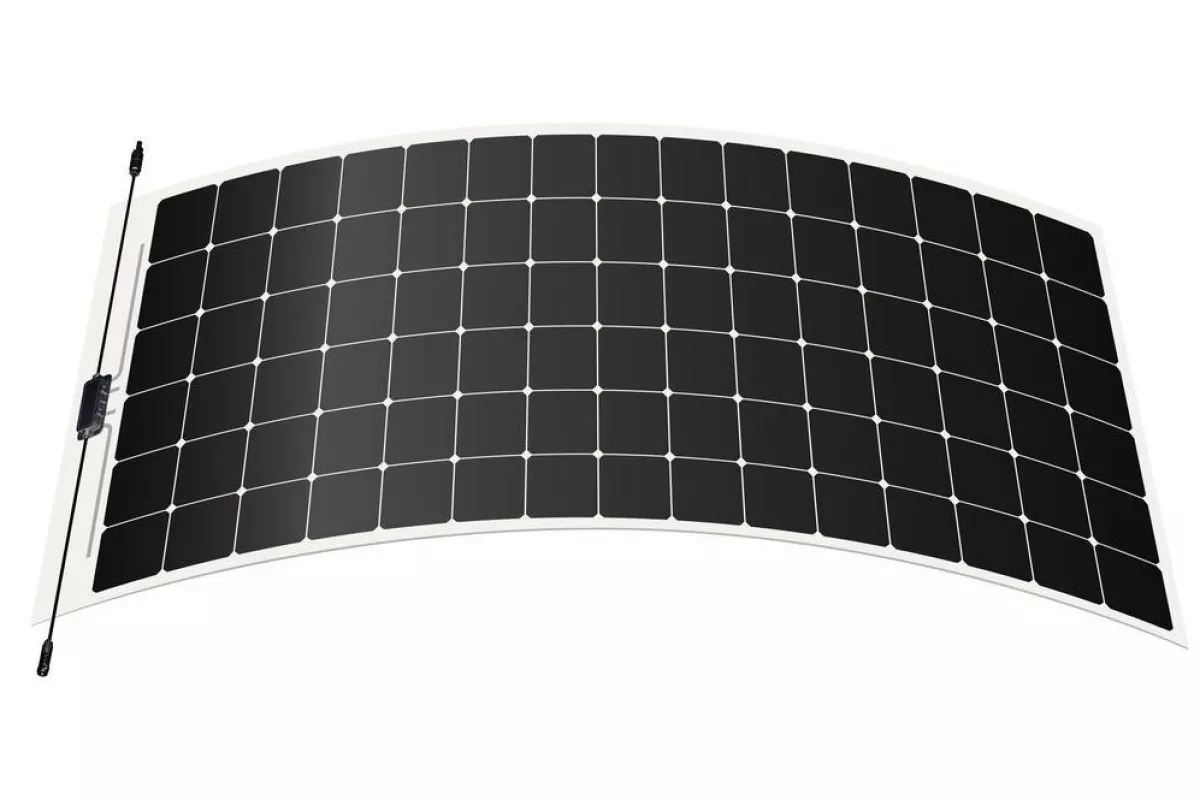Singapore's Maxeon Solar Technologies reckons that it's come up with a way to install photovoltaic panels on the roofs of commercial buildings that may not be able to support conventional setups. The company has created frameless, thin and lightweight panels that can be adhered directly to a roof.
"The Maxeon Air technology platform continues our 35-year legacy of solar panel technology innovation and once again demonstrates the ability of our R&D team to develop leading edge, disruptive technology," said Maxeon CEO, Jeff Waters.
"For close to 50 years, the solar power industry has almost exclusively utilized glass superstrate panel construction. As solar panels have increased in size, and the cost of solar cells has been dramatically reduced, the cost of transporting, installing and mounting large glass panels has become a relatively larger portion of total system cost. With Maxeon Air technology, we can now develop products that reduce these costs while opening up completely new market opportunities such as low-load commercial rooftops."
Described as a "peel-and-stick" solution, the Maxeon Air panels are backed by an integrated adhesive layer that allows them to be installed directly on the rooftops of commercial buildings without needing aluminum frames, racking, anchors or ballast. They've also been engineered to work with uneven roof surfaces.
Each panel is made up of a number of IBC solar cells, which have a metal foundation and stress-relieved cell connects, and are reported to be resistant to corrosion and able to bend without cracking. Overall panel efficiency is touted as 20.9 percent, and shade tolerance has also been integrated into the design.
"Maxeon's IBC module technology has the unique ability to pass current while shaded, continuing to produce power in conditions that would shut off other panels," explained Waters. "This feature, along with inherently low temperature sensitivity, ensures industry leading performance in all conditions."
The company is claiming an installed weight of less than half that of conventional panels, at around 6 kg/m2, so they're well-suited for installation on roofs that are not engineered to support the weight of conventional solar systems. Maxeon estimates that the untapped potential from low-load commercial rooftops in Europe alone could be over 4 GW. But the company is also eyeing potential use on residential rooftops, floating solar farms, and e-mobility further down the track.
After five years of research and development, the Maxeon Air technology will make its public debut in July, followed by installation on a select few projects in Europe in the second half of this year. General availability is pegged for the first quarter of 2022.
Source: Maxeon Solar Technologies




